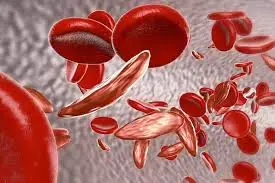- Home
- Medical news & Guidelines
- Anesthesiology
- Cardiology and CTVS
- Critical Care
- Dentistry
- Dermatology
- Diabetes and Endocrinology
- ENT
- Gastroenterology
- Medicine
- Nephrology
- Neurology
- Obstretics-Gynaecology
- Oncology
- Ophthalmology
- Orthopaedics
- Pediatrics-Neonatology
- Psychiatry
- Pulmonology
- Radiology
- Surgery
- Urology
- Laboratory Medicine
- Diet
- Nursing
- Paramedical
- Physiotherapy
- Health news
- Fact Check
- Bone Health Fact Check
- Brain Health Fact Check
- Cancer Related Fact Check
- Child Care Fact Check
- Dental and oral health fact check
- Diabetes and metabolic health fact check
- Diet and Nutrition Fact Check
- Eye and ENT Care Fact Check
- Fitness fact check
- Gut health fact check
- Heart health fact check
- Kidney health fact check
- Medical education fact check
- Men's health fact check
- Respiratory fact check
- Skin and hair care fact check
- Vaccine and Immunization fact check
- Women's health fact check
- AYUSH
- State News
- Andaman and Nicobar Islands
- Andhra Pradesh
- Arunachal Pradesh
- Assam
- Bihar
- Chandigarh
- Chattisgarh
- Dadra and Nagar Haveli
- Daman and Diu
- Delhi
- Goa
- Gujarat
- Haryana
- Himachal Pradesh
- Jammu & Kashmir
- Jharkhand
- Karnataka
- Kerala
- Ladakh
- Lakshadweep
- Madhya Pradesh
- Maharashtra
- Manipur
- Meghalaya
- Mizoram
- Nagaland
- Odisha
- Puducherry
- Punjab
- Rajasthan
- Sikkim
- Tamil Nadu
- Telangana
- Tripura
- Uttar Pradesh
- Uttrakhand
- West Bengal
- Medical Education
- Industry
Thalidomide-Hydroxyurea Combo More Effective for Sickle Cell Anemia, suggests research

Researchers have found in recent clinical trial conducted in India that combining thalidomide with hydroxyurea (HU) significantly outperformed HU alone in treating sickle cell anemia (SCA). The combination improved hemoglobin levels, reduced painful vaso-occlusive crises, and lowered the need for blood transfusions, demonstrating both safety and greater efficacy over HU monotherapy.
The clinical course of sickle cell anemia (SCA) is variable, with chronic hemolysis and end-organ damage caused by microvascular occlusion. We evaluated the efficacy and safety of thalidomide plus hydroxyurea (HU) compared with HU alone to determine whether the combination provides a superior clinical benefit and safety profile.
This was an open-label quasi-experimental clinical trial (Clinical Trials Registry of India, CTRI Registration Number 2023/04/065682). Patients with SCA aged > 12 years and postmenopausal females aged > 45 years were allocated 1:1 to receive either HU (20 mg/kg/day) and thalidomide (50 mg/day) in Group A or HU (20 mg/kg/day) only in Group B.
Results: The frequency of vaso-occlusive crises (VOCs), transfusion requirements, variations in hematological parameters (hemoglobin [Hb], fetal hemoglobin [HbF], and sickle hemoglobin [HbS]), and side effects between the groups were assessed over 12 months. Repeated-measures analysis of variance was used to determine changes across the observation period. The mean age of the 66 patients diagnosed with SCA (homozygous HbS mutation) was 32.9 (standard deviation ± 11.5) years, and 57.6% were males. Over the 12-month observation period, Group A had significantly fewer VOCs (3.48 ± 2.81) and packed red blood cell transfusions (3.61 ± 2.19) than Group B (11.36 ± 4.20 VOCs; 13.27 ± 3.70 transfusions) (p = 0.0001).
There was a significant increase in Hb (8.2 ± 1.8 to 11.8 ± 1.2 g/dL), a decrease in HbS% (72.5 ± 5.5 to 64.5 ± 5.4), and a rise in HbF% (18.9 ± 5.1 to 28.4 ± 5.6) (p < 0.0001) in Group A. Combining thalidomide with HU significantly reduced VOCs and transfusion requirements, improved Hb and HbF%, and decreased HbS levels.
Reference:
Samal, P., Paul, A., Bahirat, H. et al. Efficacy and safety of thalidomide with hydroxyurea in sickle cell anemia: a quasi-experimental clinical trial. Blood Res. 60, 21 (2025). https://doi.org/10.1007/s44313-025-00068-4
Dr. Shravani Dali has completed her BDS from Pravara institute of medical sciences, loni. Following which she extensively worked in the healthcare sector for 2+ years. She has been actively involved in writing blogs in field of health and wellness. Currently she is pursuing her Masters of public health-health administration from Tata institute of social sciences. She can be contacted at editorial@medicaldialogues.in.
Dr Kamal Kant Kohli-MBBS, DTCD- a chest specialist with more than 30 years of practice and a flair for writing clinical articles, Dr Kamal Kant Kohli joined Medical Dialogues as a Chief Editor of Medical News. Besides writing articles, as an editor, he proofreads and verifies all the medical content published on Medical Dialogues including those coming from journals, studies,medical conferences,guidelines etc. Email: drkohli@medicaldialogues.in. Contact no. 011-43720751


